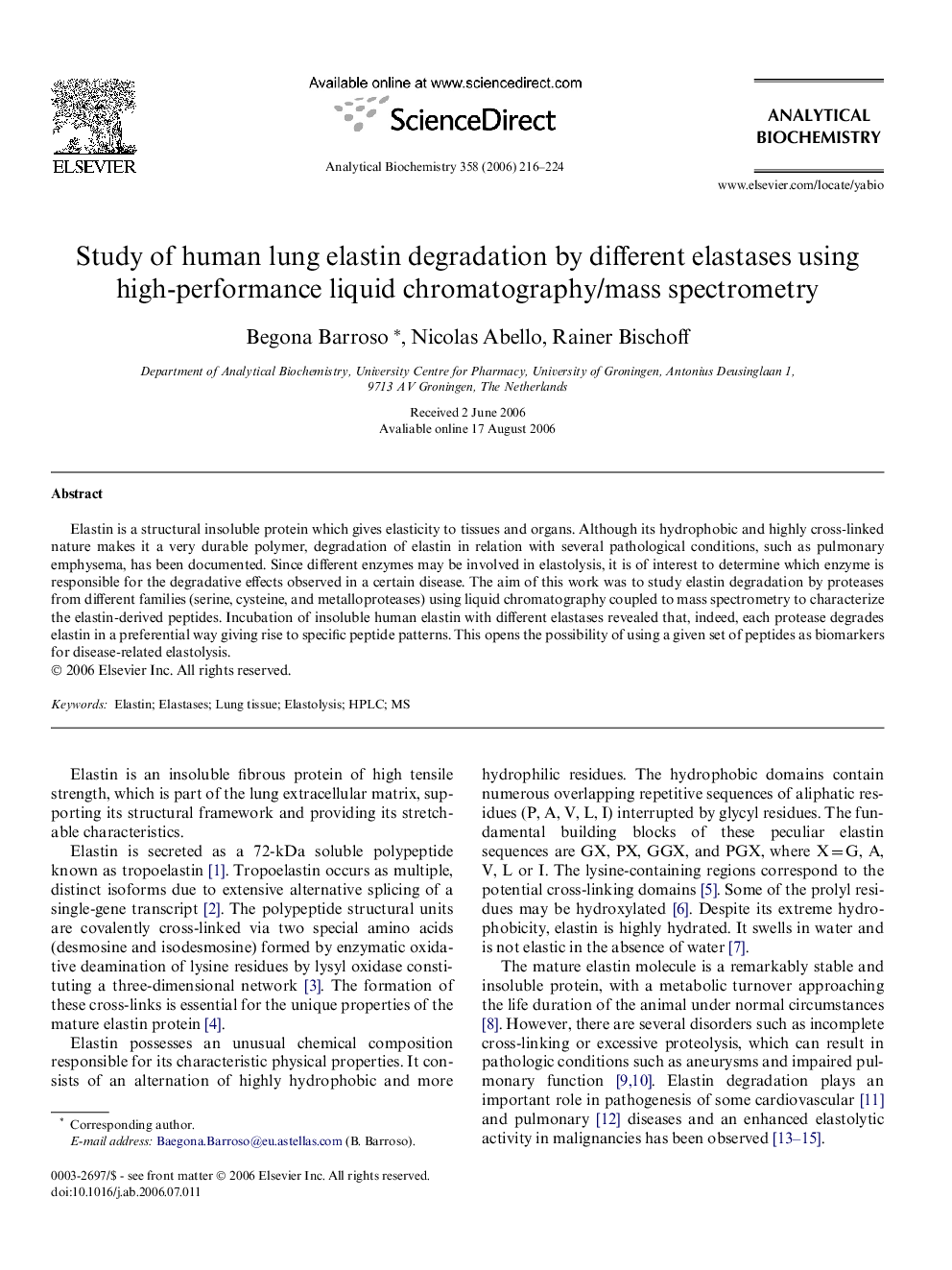| Article ID | Journal | Published Year | Pages | File Type |
|---|---|---|---|---|
| 1176757 | Analytical Biochemistry | 2006 | 9 Pages |
Elastin is a structural insoluble protein which gives elasticity to tissues and organs. Although its hydrophobic and highly cross-linked nature makes it a very durable polymer, degradation of elastin in relation with several pathological conditions, such as pulmonary emphysema, has been documented. Since different enzymes may be involved in elastolysis, it is of interest to determine which enzyme is responsible for the degradative effects observed in a certain disease. The aim of this work was to study elastin degradation by proteases from different families (serine, cysteine, and metalloproteases) using liquid chromatography coupled to mass spectrometry to characterize the elastin-derived peptides. Incubation of insoluble human elastin with different elastases revealed that, indeed, each protease degrades elastin in a preferential way giving rise to specific peptide patterns. This opens the possibility of using a given set of peptides as biomarkers for disease-related elastolysis.
